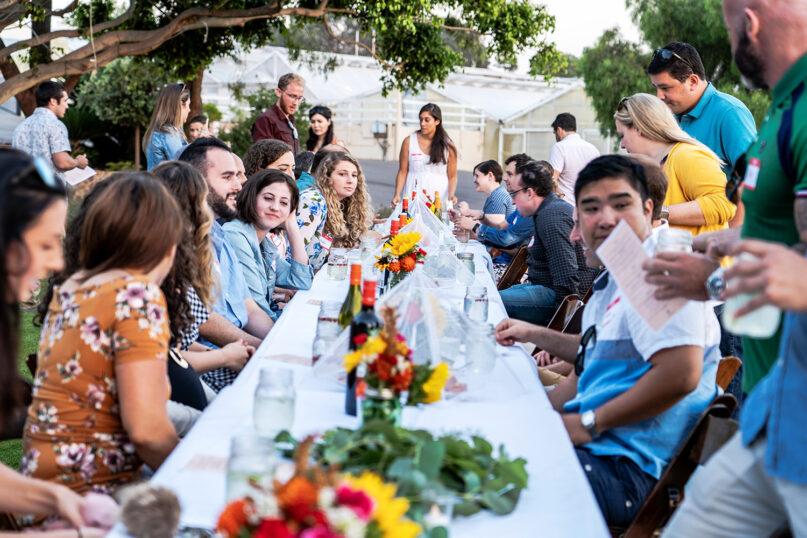(RNS) — It’s no surprise that many Americans in their 20s and 30s are struggling. As we come out of the pandemic, financial strains, gun violence, the pressures of social media, climate fears and widening political polarization all operate to make young adults more stressed and more socially isolated than ever. There’s no magic fix for the causes of their stress, but we can offer them antidotes to their negative feelings.
We’ve known for some time that interpersonal connections can help people live longer. New research shows the power of regular common rituals to make room to build these kinds of connections, strengthen mental health and mitigate loneliness. In a world that can feel chaotic and unwieldy, a few hours of dedicated space and time once a week can truly make an impact.
These are some of the reasons I helped to launch an organization nearly a decade ago called OneTable, which builds on the ancient Jewish ritual of Shabbat, or Sabbath, to empower young adults to sit down to Friday night dinners with their peers and navigate modern obstacles to well-being.
RELATED: Black Jewish leader works to boost community, inclusiveness
We surveyed 2,000 young adults who have hosted or been guests at a dinner through OneTable, and they overwhelmingly say that they’ve become closer with people and “felt less lonely.” The dinners have also led to new friendships: 1 in 3 guests surveyed met up again with someone they met at a dinner.
Beyond making connections, young adults search for inviting spaces to share feelings and thoughts about their personal lives, fears and ambitions. They are deeply influenced by the world they see and experience around them — and as one young person put it, Shabbat dinner offers “community, safety, and freedom.”
In the same survey we asked young adults how they have been affected by rising antisemitism and the conflict between Israelis and Palestinians. While they expressed concern over both antisemitism in general and the conflict, those areas were not their greatest concern. More pressing to young adults are climate change, racism and, at the time they were surveyed, the ongoing pandemic.
Importantly, and somewhat surprisingly given the polarization we see on social media, not everybody is looking for a group of like-minded individuals. Many young adults want to be with people who will be supportive, respectful and understanding, even when having difficult discussions and disagreements.
While young adults seek out Shabbat dinners as a way to center these issues in their lives in meaningful ways with peers, they also find respite from them, a time to “just be.” At the same time, while Shabbat dinners impact all who attend, we have found they make the deepest impact on the hosts, likely because hosts have a stronger sense of agency over their gathering.
RELATED: The science of Sabbath: How people are rediscovering rest—and claiming its benefits
This research has only motivated us more to understand how Shabbat dinner is linked to human flourishing — and how the elements of Shabbat could be adapted to support people of all faiths and no faith. Thanks to a grant from the Templeton World Charity Foundation, George Washington University’s Collaborative for Applied Studies in Jewish Education will work with OneTable over the next three years on a rigorous study in this area. Our findings could inform how other communities develop their own programs to combat a national epidemic of loneliness and social fraying.
There’s no quick fix to many of the trends troubling young adults today, but we can contribute to the making of healthier people, mentally and physically, living in a more connected, supportive society.
(Aliza Kline is president and CEO of OneTable. The views expressed in this commentary do not necessarily reflect those of Religion News Service.)





